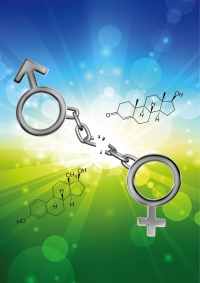Europeans and the environment will continue to be exposed to pesticides that cause endocrine-related diseases to humans, animals and wildlife, according to this week’s Commission’s proposal. The proposal is an amendment to the regulation of Endocrine Disrupting (ED) pesticides (1107/2009, Annex II 3.6.5. and 3.8.2) to introduce the unrealistic and dangerous concept of ‘negligible risk’ and increase the presence of these harmful substances in our food by hundreds or thousand times.
The Commission is bypassing the co-decision process, a process that the European Parliament has already objected to. PAN Europe warns that this is not only completely undemocratic and unlawful but it also cancels the effectiveness of the legislation to protect Europeans, particularly children, infants and babies in the womb and our environment from endocrine disrupting chemicals (EDCs).
In this week’s Standing Committee of Plants Animals Food and Feed of Member States (July 19th-20th), DG SANTE is bringing back on the table the ‘promised’ proposal, which though innocent at first glance, it violates the essential provisions of European Law to provide a high level of protection for humans, animals and the environment (reg. 1107/2009/EC). The proposal calls to change the exception in the regulation of ED pesticides from ‘negligible exposure’ to ‘negligible risk’ and increase the permitted residues in food tremendously (from close to the limit of detection i.e. 0.01 mg/kg to normal Maximum Residue Limits e.g. 5-10 mg/kg as with any other authorised non-hazardous pesticides). Hiding behind complex and technical wording, now the industry can keep a hazardous product on the market even though it has been demonstrated to cause serious irreversible endocrine-related disorders and diseases. Exposure may now not be negligible, but hundred or thousand times higher.
Only last May the controversial criteria to identify pesticides that are endocrine disruptors entered into force. The criteria were criticized by the scientific community, some Member States and civil society organisations for having an excessively high burden of proof requiring scientific knowledge that we currently do not have and risking to fail to meet the adequate level of protection foreseen by the pesticides regulation. But while the society is concerned about the protection of our children from ED pesticides, DG SANTE’s proposal guarantees to keep these hazardous chemicals on the market and protect private profit.
Hans Muilerman, PAN Europe’s Chemical officer highlights “The laborious 9-year work and debate on endocrine criteria in the end will be made futile with this proposal since meeting the criteria will have no impact and ED pesticides will be kept on the market”.
The amendment claims to be based on new evidence from EFSA’s 2013 opinion, while “cherry picking” conveniently, a phrase to justify turning the hazard-based criteria for EDs into risk-based. The proposal neglects to mention that another scientific report in 2013 from the Commission’s JRC showed there was no scientific consensus on a safe limit of exposure for EDCs. Moreover, it also misses to refer to much more recent and up-to-date scientific evidence from the Commission itself demonstrating that current testing protocols have major data gaps (JRC expert survey), and that low dose effect during prenatal periods are not adequately addressed (European Commission).
Angeliki Lysimachou, PAN Europe’s environmental toxicologist highlights “It’s not up to the Commission nor to SCoPAFF to change the provisions of the European Law. ED pesticides can cause serious, irreversible damages to foetuses and children at low doses, similar to the environmental. The Commission should respect the law and leave the exception to negligible exposure”.
Attachment: Briefing on Negligible risk by PAN Europe.
Contact: Angeliki Lysimachou, angeliki [at] pan-europe.info, Tel. +32 2 318 62 55
